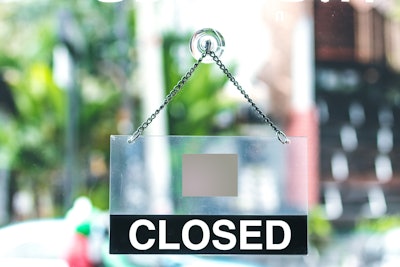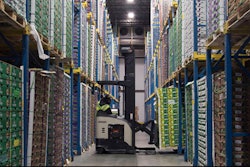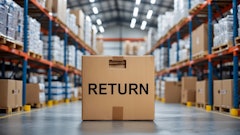
The supply chain has been one of the hardest areas hit by the Coronavirus (COVID-19) pandemic, while still maintaining operation. The retail and manufacturing sectors are dramatically changing, as the world almost comes to a halt to prevent further spread of the virus. Throughout this uncertainty, the term “Force Majeure” keeps coming to surface.
Based on the French phrase meaning “greater force,” the term relates to a clause found in contracts pertaining to an act of God or event out of a party’s control that prevents it from completing its duties. The Coronavirus (COVID-19) is certainly one of those events.
Many manufacturers and transportation companies are attempting to maintain contracts with partners while navigating the current challenging landscape. However, many are unable to hold up their end of the bargain due to innumerable reasons related to the outbreak. Currently, the most pressing issue is determining what exactly is considered an essential business, as local and state governments lock down areas to any operation deemed “non-essential.”
“Right now, the focus seems to be on businesses determining whether they are ‘essential’ in reaction to various government decrees,” says Sarah Rathke, partner at Squire Patton Boggs LLP, Cleveland, Ohio. “The force majeure analysis will inevitably follow that analysis.”
Creative solutions
Rathke explains that many companies will be forced to enact this clause during the pandemic, but this may only be a short-term solution. As these shutdowns make their way through global economies, markets will continue to hurt, and companies will lose revenue. According to CNBC, March 16 saw the Dow plunge nearly 3,000 points, alongside S&P’s 500-point loss, the worst since 1987 due to fears of the pandemic. It will be the governments’ stimulus packages and policies put into place that will help mitigate the situation in the long term, in addition to companies’ ability to think innovatively.
“As the economy constricts and many industries are shut down in reaction to the COVID-19 pandemic, the fundamental purpose of many contracts may be frustrated and/or supply may become impossible,” says Rathke. “However, simply asserting contractual rights may only be a short-term solution to this broader problem. Many governments are putting together economic stimulus packages that can ameliorate some of the unfortunate effects. And, capital restructuring in collaboration with a company’s supply chain partners may provide innovative ways – more productive than litigation – to keep industries afloat while we deal with this catastrophe.”
Listen to our podcast on how companies are legally handling COVID-19 here:
Communication is key
Right now, manufacturers are switching gears on their normal operations to instead provide essentials for consumers and necessities for medical staff while also keeping parts of their staff at home in respect of the stay-at-home orders. While these companies focus on doing what is right, they also need to maintain legal obligations to their partners, which means immediately notifying impacted parties as soon as it determined the manufacturer will not be able to fulfill its contractual duties.
Supply chain companies are advised to reach out to their lawyers and evaluate their contracts to ensure there is a force majeure clause in place and that they are undergoing the correct procedures to ensure everyone is protected. Many times, retailers and manufacturers have policies in place with insurance companies that can help offset the cost and loss of revenue that comes during an emergency.
In cases such as this, partners will look for proof that the party in question truly cannot perform its duties in addition to a recorded exit or contingency plan that details how exactly it is attempting to rectify the situation.
If a partner fails to show proof or enacts the clause in a timely manner, it could result in losing the company’s right to enact the clause altogether.
“Often, force majeure clauses have specific requirements for giving notice that the company is relying on a force majeure event for relief from compliance,” says John Shapiro, partner in the complex litigation practice group at Freeborn & Peters LLP, Chicago. “The failure to send prompt and adequate notice, in some cases within a particular timeframe, may result in waiver of the right to rely on the force majeure clause. To that end, a company’s assessment of strategies to deal with its inability to comply with supply obligations must be done efficiently as well as effectively.
“In addition, the assessment should include consideration of other clauses in the supply agreement and other agreements, such as financing agreements, that may be impacted by the events or a declaration of force majeure," adds Shapiro. "Further, the strategy assessment should include whether insurance may cover losses arising out of the company’s (or its supply partner’s) inability to satisfy its contractual obligations. If in doubt about whether an event constitutes force majeure under a supply agreement or other aspects of its assessment and notice, a company should consult its counsel without delay.”
Given the current circumstances, most investors and partners seem to be flexible, as the world comes together to help one another. Communication will be the most important factor moving forward.
“From a litigation perspective, [there are] less [consequences] than usual,” says Rathke. “Many courts are shut down and to the extent they are not, they will be inundated with these types of disputes. The better bet at the moment is to be very transparent about capabilities with supply chain partners and lenders and work creatively to find the best solution under the circumstances.”
The modern world is unused to a viral pandemic at such a scale and its reliance on the supply chain has been upended. But, retailers, supply chains, manufacturers, consumers and government officials alike will work together to ensure the safety and wellness of the world.













![Pros To Know 2026 [color]](https://img.sdcexec.com/mindful/acbm/workspaces/default/uploads/2025/08/prostoknow-2026-color.mduFvhpgMk.png?ar=16%3A9&auto=format%2Ccompress&bg=fff&fill-color=fff&fit=fill&h=135&q=70&w=240)


